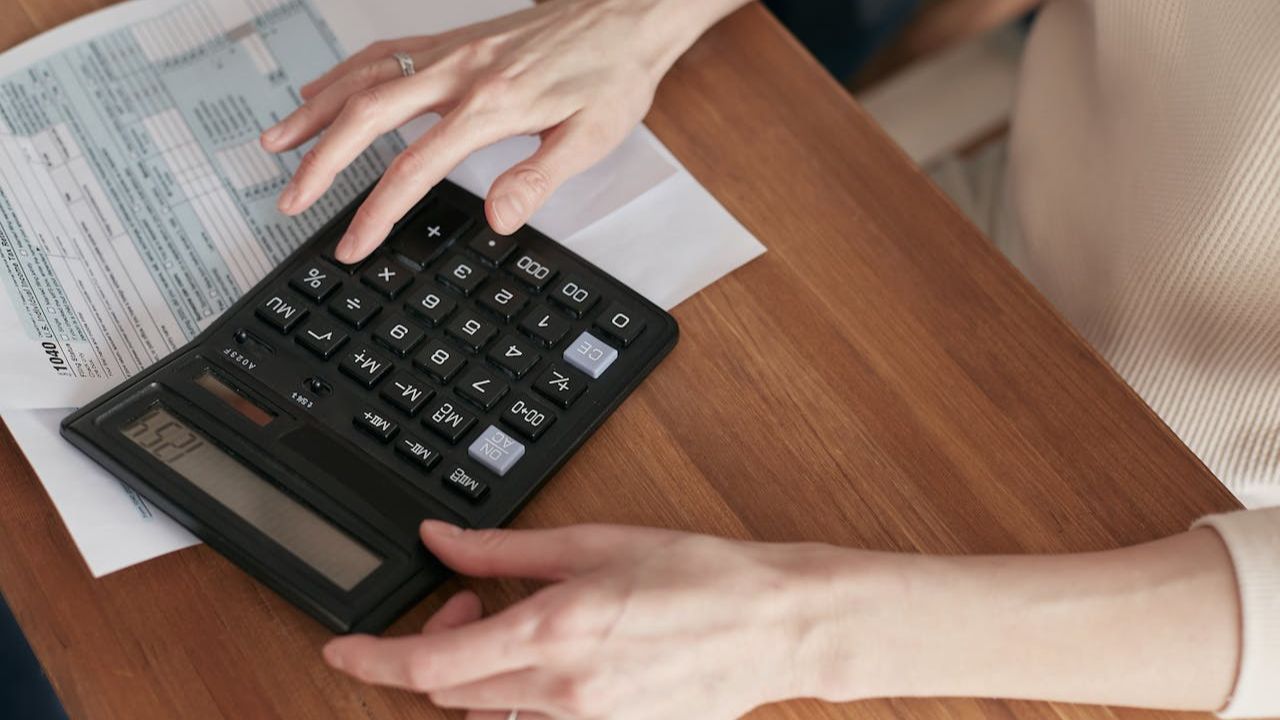Tax Checklist Switzerland (2025)

Let’s be honest—filing taxes isn’t exactly the highlight of the year. But whether you’re a Swiss resident, an expat, an employee, or self-employed, understanding how the Swiss tax system works can save you a lot of money (and headache).
In this guide, I’ll walk you through everything you need to know about tax returns in Switzerland: key deadlines, who needs to file, must-have documents, and the best ways to maximize your deductions. Whether you’re doing it yourself or looking for expert help, by the end of this article, you’ll have a clear plan to tackle your taxes like a pro.
Table of contents:
- Why should you file your taxes?
- When are taxes due in Switzerland?
- Filing your taxes vs. source tax
- Documents you need to file your tax declaration
- Tax checklist
- How to file your tax declaration
- Conclusion & recommendations
Why should you file your taxes?
Filing your taxes isn’t just an obligation—it’s an opportunity! By submitting your tax declaration, you ensure that you’re only paying the taxes you actually owe, and not a cent more. Many people leave money on the table simply because they don’t take advantage of deductions, allowances, or refunds they’re entitled to.
For example, if you’ve had work-related expenses, contributed to your 3a pillar, or paid for health treatments, you might be able to lower your taxable income. Filing your taxes gives you control over your finances and helps you maximize your return.
Plus, if you earn above CHF 120’000.- or meet other criteria (we’ll cover that), you’re actually required to file—so it’s best to be proactive and prepared.
When are taxes due in Switzerland?
Employees and self-employed persons have until the 31st of March to hand in their yearly tax declaration. Companies such as GmbH or AG follow different dates.
Should you not be able to make the deadline, you can file an extension. The duration of the extension as well as the cost associated with it depends from canton to canton.
Follow this link to find out what deadlines apply in your canton.
Filing your taxes vs. source tax
Swiss residents and citizens need to file their taxes. However, if you are a foreigner living in Switzerland, you might be able to choose whether or not you are handing in a tax declaration.
You need to file a tax declaration if:
- you earn more than CHF 120’000.- per year,
- you own assets worth more than CHF 100’000.- and generate a cash flow of more than CHF 2’000.- per year from those assets,
- you have an “Ausweis C” = C permit,
- are married to a Swiss resident.
Should none of these apply to you, you are free to decide, if you want to file your taxes or simply be taxed at source.
I have written a whole article that is going to help you decide if you want to file or be taxed at source - click here!
Important: If you are taxed at source and have voluntarily paid into the 3a pillar, then you’ll need to file a tax declaration!
Documents you’ll need for your tax declaration
As you might know, I’m a huge fan of preparation and planning. The same goes for your tax declaration! Have all your documents ready so that you can do your taxes in a timely and organized manner.
Here’s what you will need:
|
Income |
|
|
Last year’s income statements |
|
|
Alimony received |
|
|
Pensions, annuities, social security benefits |
|
|
Unemployment benefits received |
|
|
Assets |
|
|
Account balances |
|
|
Overview of interest, dividends, earnings received |
|
|
Tax statement of brokerage account |
|
|
Life insurance statement |
|
|
DEDUCTIONS |
|
|
Debts |
Any debt statements (incl. interest paid) |
|
Expenses |
|
|
Health insurance statement |
|
|
Invoices from dental expenses |
|
|
Invoices from work-related expenses (such as courses, coachings, clothing, travel) |
|
|
Receipts of charitable donations |
|
|
Alimony paid to ex-partners and kids |
|
|
Invoices from child care |
|
|
Pension planning |
|
|
Receipts of voluntary payments into your pension fund (2nd pillar) |
|
|
Receipts of voluntary payments 3a |
|
|
Real Estate |
|
|
Overview of rental income |
|
|
Mortgage statement and interest paid |
|
|
Property tax statement |
|
|
Invoices for maintenance, property management |
Tax checklist for 2025
I want to help you make the most of your tax declaration this year. That is why I have compiled a list of possible deductions so you can go ahead and tick them off one by one!
|
Beware: Tax deductions differ by canton. Make sure to check your canton’s regulations before handing in your taxes! |
Tax deductions related to work 💼
- Car travel expenses to and from work as well as business trips that haven’t been reimbursed by your employer (minimum CHF 3’000.-; check your canton to see if you can deduct more)
- Public transport to and from work
- Up to CHF 700.- for if you ride your bike to work
- Expenses for meals during work-related travel that haven’t been reimbursed by your employer
- Meal allowances: tax-deductible as a lump sum of up to CHF 3’200.- if you go to the office every day and your office is further than 3 km from your house. With a home office arrangement, you deduct the lump sum per working day in the office (CHF 15.- per day). If your employer offers lunch as a benefit (even if only at a reduced rate), you can claim up to CHF 1’600.- per year.
- Work expenses like pens, paper, ink
- Home office expenses like internet, electricity, equipment
- Educational courses and books related to your job
Tax deductions related to health & Insurances 🛡️
- Private contributions to insurances like accident insurance
- Expenses associated with your health (dental work, hospital fees)
Tax deductions related to retirement 👵🏻
- Pension fund buy-ins (different limits apply for expats: limited to 20% of total income in the first 5 years)
- Contributions to 3a pillar (up to 7’258.- per year) in case you are self-employed it’s 20% of your profit however capped at 36’288.-)
Tax deductions related to children 👶🏼
- Child care expenses
- General child deductions (more info can be found here)
- Alimony incomes / payments
Tax deductions related to real estate 🏡
- Interest paid
- Costs associated with managing the property
- Renovations aimed at maintaining the value of the property
Other tax deductions 💰
- Costs associated with your bank or brokerage account or wealth management
- Costs associated with moving (move has to be associated with job change)
- Make sure any debt is subtracted from your assets to reduce the amount of taxable assets
- Any donations made to political parties or charitable organization in Switzerland
- Payments made to people in need (e.g. parents living abroad)
How to file your tax declaration in Switzerland
You have three options for filing your tax declaration:
- You can do it yourself
- You can do it yourself - with help of tax tools (like taxdone)
- You can have a tax advisor do it (you can find one through Smart eTax)
Here's a rundown of the benefits and risks per option:
|
DIY |
DIY with tools |
Tax expert |
|
|
Benefits |
Quick and cost effective |
Quick and cost effective Get some guidance on how to do your taxes and maximize returns |
Expert advice (especially in more complex situation like expats) Will get the most out of your tax return |
|
Risks |
You might miss important tax deductions resulting in a lower tax reimbursement Not the right fit for more complex situations (e.g. foreign income) |
Not the right fit for more complex situations (e.g. foreign income) |
|
|
Cost |
+ |
+ |
+++ |
The best option is the one that works best for you and your personal situation.
💡 My advice: If you have foreign income or are an expat, have different income streams from different assets - get a tax expert. And I mean an expert - thus their hourly rate will be around 350.-/h and your tax declaration won’t just cost you 100.- (if so - it’s not an expert doing it and then you might as well do it yourself).
A tax expert will not only do it correctly, but will likely get you more money back, which in return covers some of his or her fee. And it will allow you to do your tax declaration yourself in the coming years if you wish to do so, as you’ve learned from an expert.
Conclusion & recommendation on your tax declaration
Filing your taxes in Switzerland might seem overwhelming at first, but with the right preparation and knowledge, it doesn’t have to be. Whether you’re an employee, self-employed, or an expat, knowing the deadlines, required documents, and potential deductions can make a huge difference—not just in saving time, but also in maximizing your tax return.
If your tax situation is straightforward, you might be able to handle it yourself or with the help of a tax software like taxdone. However, if you have multiple income streams, foreign assets, or are an expat navigating the Swiss tax system, hiring a tax advisor can be a worthwhile investment. Not only will they ensure your taxes are done correctly, but they could also help you save more than their fee in the long run.
The key takeaway? Don’t leave money on the table! Take the time to understand your tax obligations, gather your documents, and use the available tools to your advantage. And if you need extra support, don’t hesitate to seek professional help.






